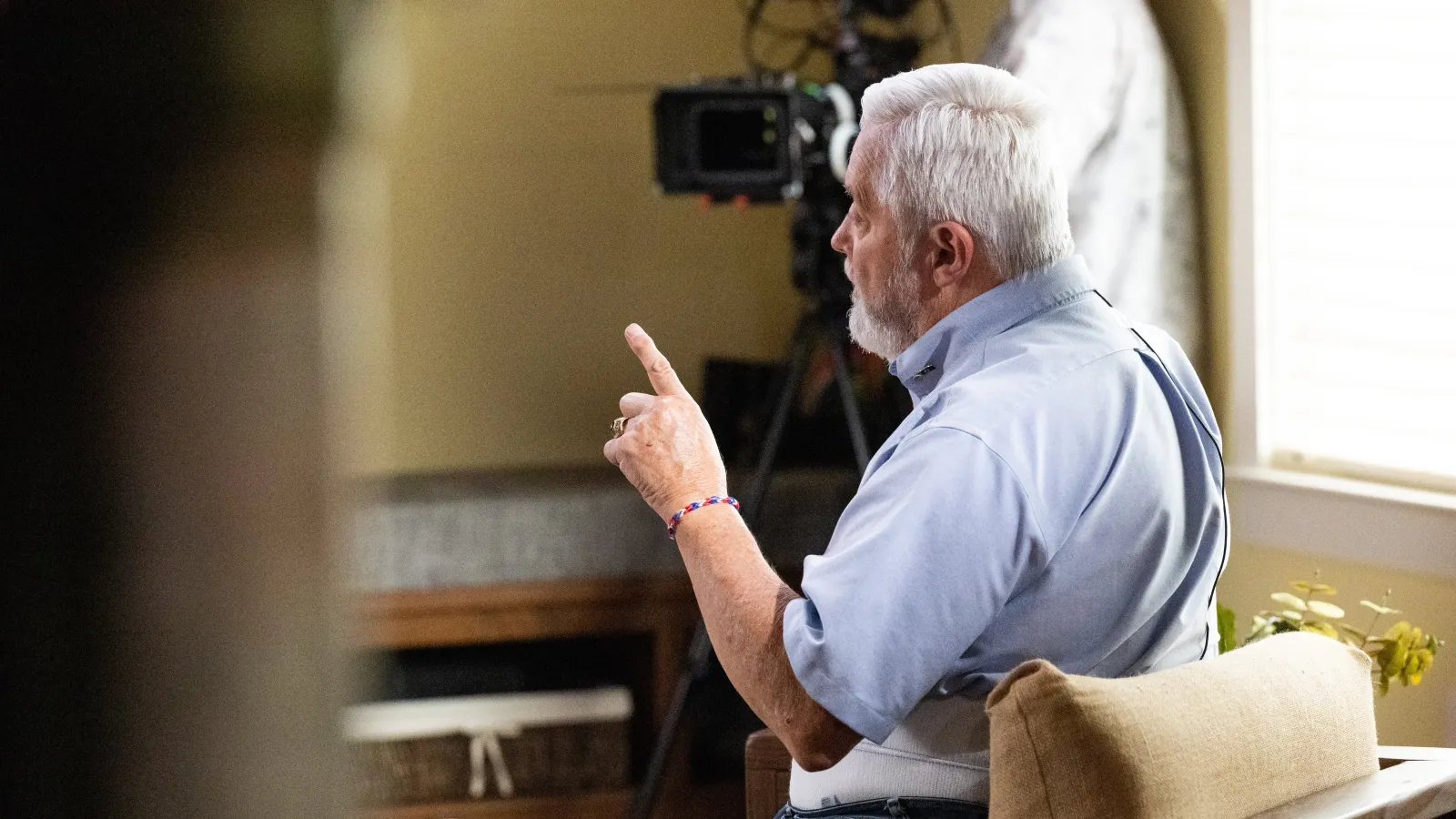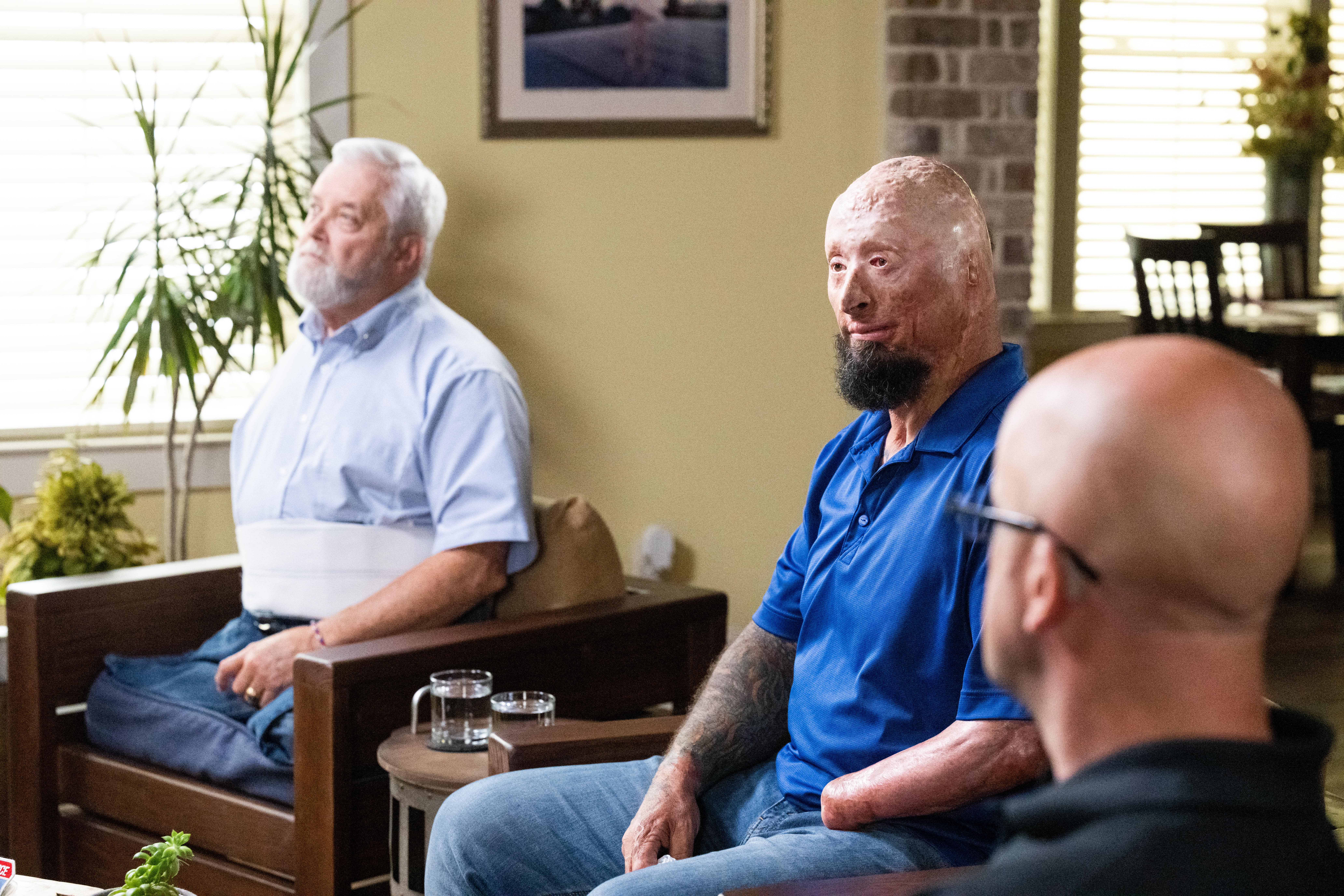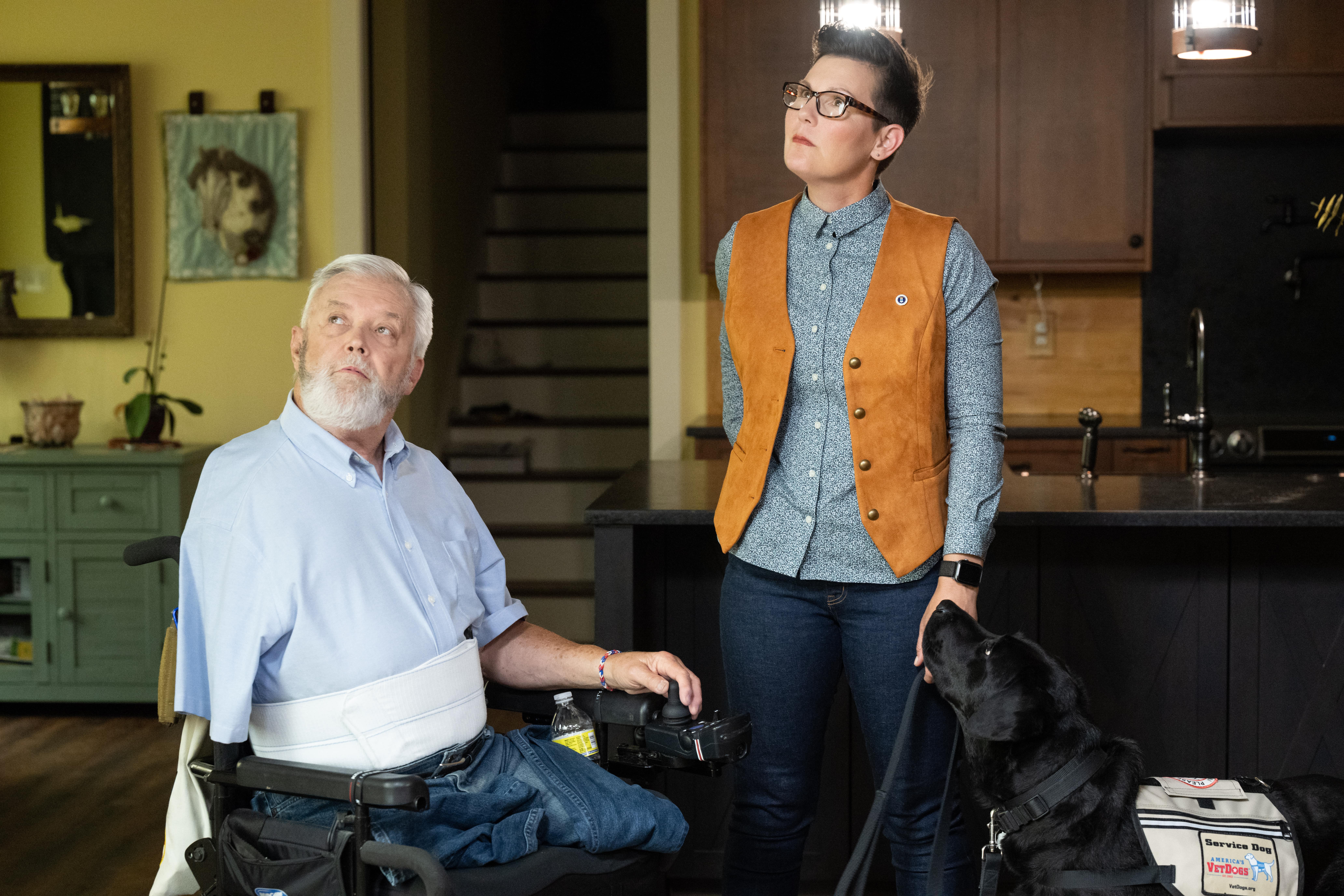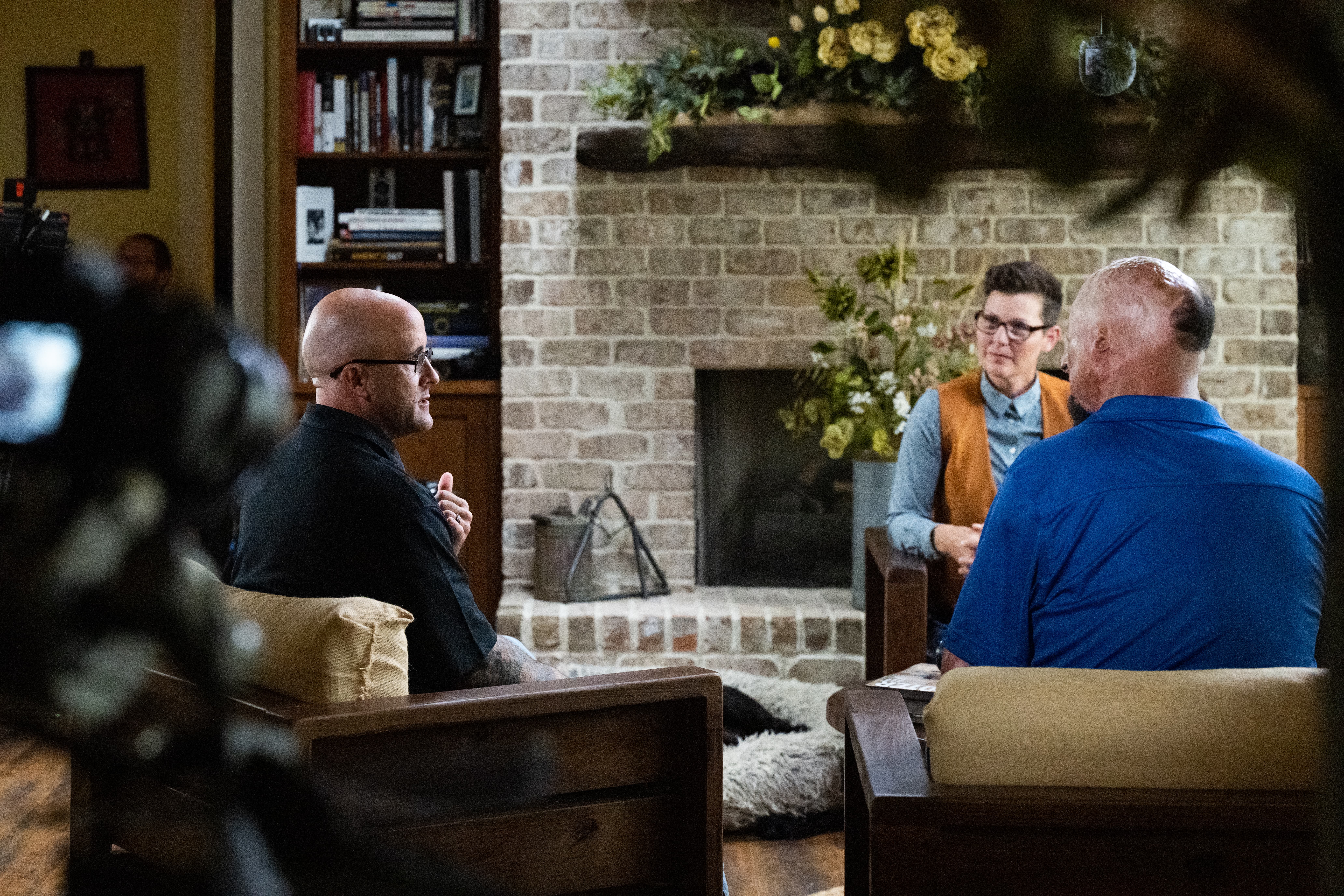
Episode 101 - Visible vs. Invisible Injuries
Stacy Pearsall sits down with Tommy Clack, Bobby Henline, and Jeffrey Crosby, three fellow veterans who also had brushes with death in service, to talk about their injuries on episode 101 - All Gave Some.
Q: Stacy to Tommy, Bobby, and Jeffrey
“I have certain days of the calendar year and the thing is sometimes if I'm not paying attention, my body knows, regardless of if I'm paying attention or not, where I just feel something snaps in my brain, in my physiological being. And something just goes numb, and things feel a little hollow. And that just happens to be a couple of key dates for me. You know, some trigger dates where I lost a lot of friends or you know, even the dates that I was blown up. Do you guys have that happen to you?”
A: Tommy
“That’s May 29 for me. I get very anxious on the 28th. I can’t stop the feeling. I don't know how or why that permeates my body, but it's coming. It’s coming the next day. And the next day comes, and I wake up and it goes away. But yeah, it’s there. I freely admit that.”
A: Bobby
“Yeah, your mind and body know. It senses it. All the years when April 7th is coming around. I know that week ahead of time, I start digging into the four guys lives too and contacting their families. And so, I know my body knows it. And I know that date. I'm not gonna forget the day I got blown up, but there's another time where it didn't make sense to me. I'm like, why am I feeling this? This is in March. I got blown up in April. Why is this feeling so weird? I didn't understand. It's like I didn't want to do anything. I got that numb feeling. What's going on? So, I was like, I'll just check some emails. I get on my computer and there's a little Yahoo message in the news. 10th anniversary OIF (Operation Iraqi Freedom). March 10th when we first rolled in. It was that day. And my body knew it and my brain put it together.”

Q: Stacy to Tommy, Bobby and Jeffrey
“So, we know each other really well, Tommy and I have no problem walking up to my brothers and sisters, no matter who they look like or where they come from, but for somebody who's outside and you say you're always the one that has to initiate the conversation, what can somebody use as a conversation starter with you?”
A: Tommy
“The only dumb question's a question not asked. That's how you break the ice. “What happened to you?” Now, little kids, God, the world should be like little kids. They're going to ask you any question that comes to mind. Nothing but the truth. "How you go to the bathroom?" Well, I ask the parents if I can answer. I mean, seriously. I've raised my son and daughter, I hope the right way and my grandkids, everybody out there looks different, but we're all human. We treat everybody with respect, okay. Doesn't matter what they look like, who they are. The reason I'm happy is because I've got friends that can't do what I can do from Vietnam. Chad is a C2 quadriplegic from a sniper bullet, still alive at 73, paints picture with his teeth that he sells. And I look at him and I think I couldn't be paralyzed. I couldn't be blind. I mean, you know, we've all, everybody, somebody's always got it worse than we got it. The bottom line.”

Q: Stacy to Tommy, Bobby, and Jeffrey
“When I watch movies or I watch television series, we're often portrayed as being these really skiddish veterans fraught with PTSD. Listen, I may spook at a balloon, but I have a hard time constantly being portrayed that way. How do you guys feel about that?”
A: Tommy
“I agree wholeheartedly. Thankfully, and I'm not tooting my generation's horn, but I think my generation changed that for the Desert Shield/Desert Storm guys. I remember organizing rallies in '90, '91 along Interstate 16, going to Savannah with the overpasses filled with people saying thank you as the armored COMs came by. If we send out men and women off - we treat 'em as heroes. When they come back, we treat 'em as heroes, okay?”
A: Jeffrey
“I think a lot of the reason that they were portrayed that way is, PTSD is actually, now it's commonplace, right? It's been accepted. It's not like when General Patton, and I'm sure you know this story, General Patton went to a hospital one time to visit his soldiers that were wounded in battle. And the soldier was in the hospital and General looked at him and couldn't see anything wrong. He was like, "Well, son, why are you not on the battlefield?" He's like, "I'm scared." General Patton took his glove off and slapped him across the face with it. That was real because you weren't allowed to be scared back then. So there's so much that changed.”
A: Bobby
“Well, I was, I want to change it. I just thought about this last month. I don't know why I was sitting there thinking about it, but change that D. You know a lot of people don't like the "Disorder" part. They say PTS, they don't want the disorder. What if it's an "I"? PTS Injury. Post-traumatic stress injury. It's a brain injury. It has to do with your brain. Put an I on the end.”

Share